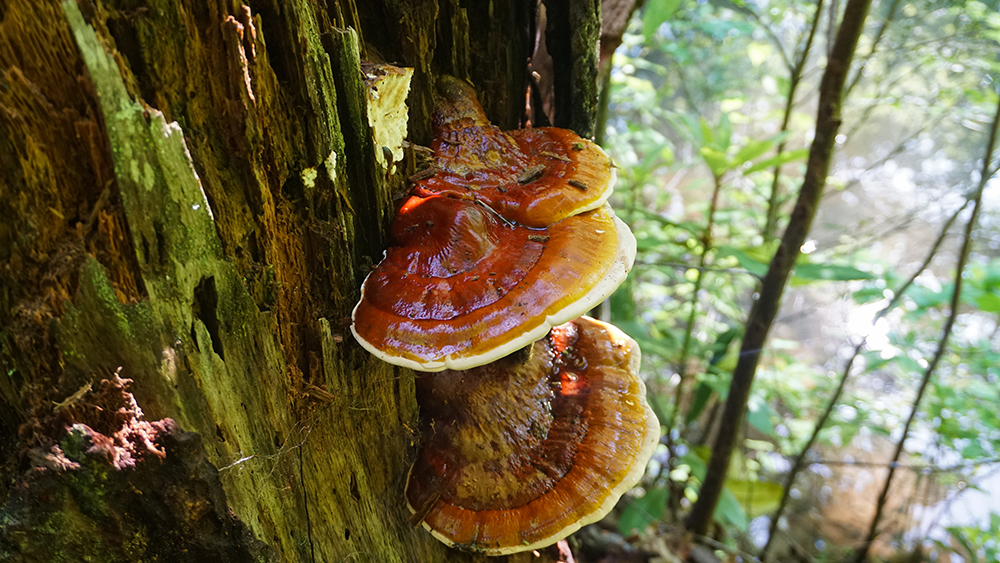I love discussing my favorite herbs as they tend to have many diverse, not to mention effective, uses. The topic of this article, reishi, or ling zhi, definitely has those traits but it also has quite interesting lore. For thousands of years, reishi was considered to be worth its weight in gold because it was long sought after to promote longevity, intelligence, health, and ultimately, immortality. Who wouldn’t want all of those attributes from an herb?
When most people think of reishi, however, they associate it with immunity. Indeed, it is the penultimate immune tonic. If I ever feel my immune system challenged, I immediately take reishi and I quickly feel better. It is fantastic for tonifying the Qi of the lungs, which in Chinese medicine is the main organ involved with immunity in the body.
Resihi has powerful anti-inflammatory effects and so treats a wide range of immune deficient conditions including allergies, asthma, atherosclerosis, arthritis, bronchitis, and the common cold, all related to an inflammatory immune response.
As well as an adaptogen to increase immunity, today reishi is also used for cancer, and much research has been done on this. Reishi contains complex sugars called betaglucans, which may stop the growth of and prevent the spread of cancer cells. In animal studies, beta-glucans activated the immune system. Reishi also contains sterols that act as precursors to hormones, and triterpenes that may lower blood pressure and have antihistamine effects. The same is true for other anticancer medicinal mushrooms, such as maitake.
Reishi not only tonifies lung Qi and is rejuvenative to the lungs, but also transforms phlegm, making it quite effective for treating cough, wheezing, deficiency consumption, and shortness of breath. As well, it treats low energy, low appetite, and poor digestion.
My favorite use of reishi is actually its main traditional property – as a calmative, for reishi also nourishes blood as well as tonifies Qi. Most people don’t know it has this effect, but it has long been used for insomnia, palpitations, forgetfulness, and fright. I have seen people who often have difficulty sleeping, especially through the 3-5 am time frame, sleep better by taking reishi. In general, reishi quiets the mind, increases oxygen absorption and coronary flow, and decreases blood pressure.
Interestingly, there are different colors of reishi. The most potent is the red ling zhi.
Reishi Mushroom Ganoderma lucidum, G. sinense
Ling zhi (Chinese)
Also named: Ganoderma
Family: Ganodermataceae
Energy and flavors: Neutral, sweet
Organs and channels affected: Heart, Liver, Lungs
Chemical constituents: Triterpenes; acids such as ganoderic acid, lucidenic acid, fu- maric acid; coumarin, glucosamine, purines, resins, alkaloids, amino acids Properties and actions: Sedative, expectorant; calms Heart Shen; tonifies Qi, nourishes Blood, transforms Phlegm, relieves coughing
Caution: With Excess conditions
Dosage and preparation: Decoction (double extraction preferred), 3-15g. Preserved decoction (decoct to desired strength then add @25% ABV; double extraction preferred), 30-60 drops TID.

